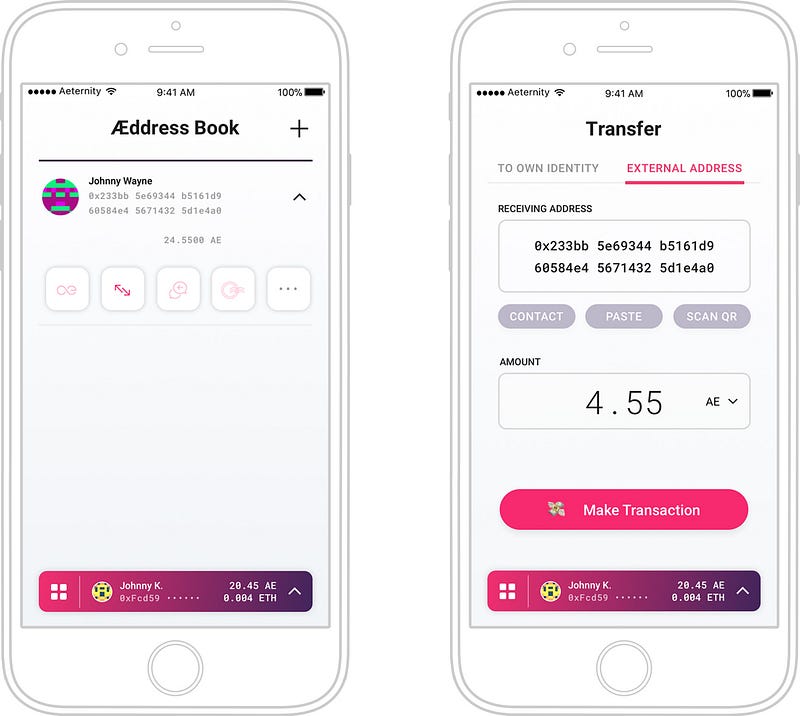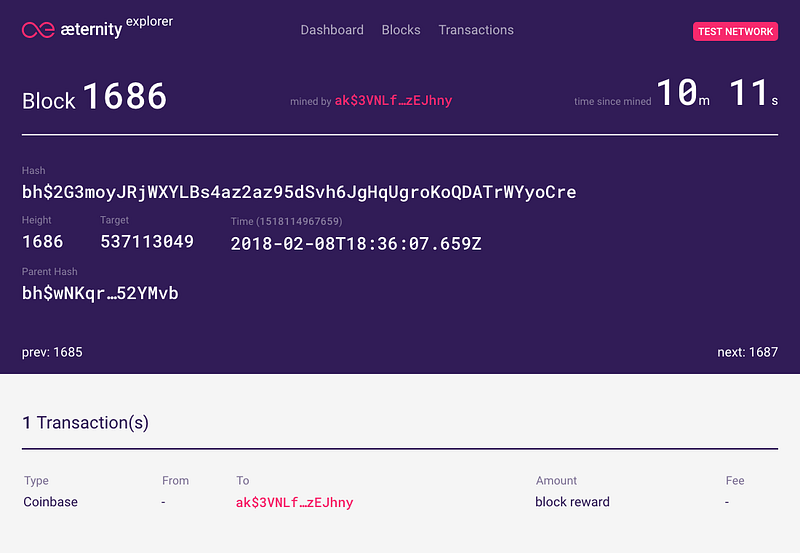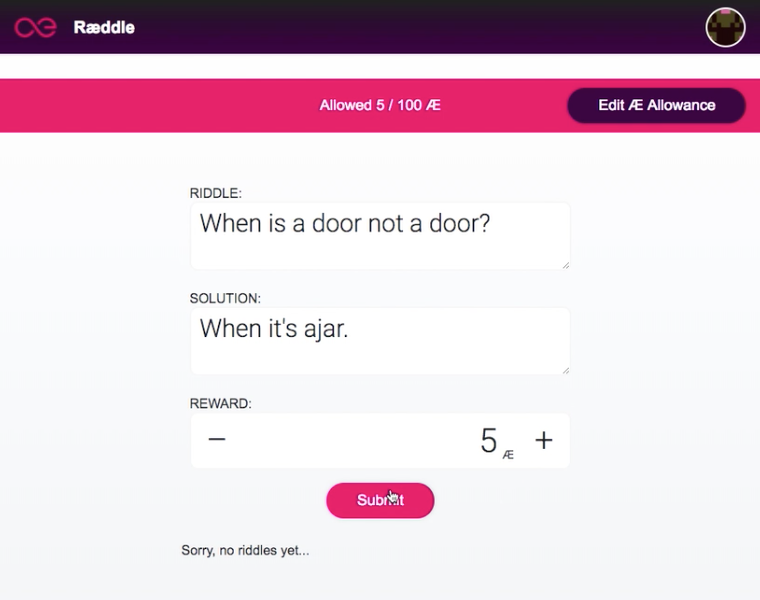
The primary objective of æternity’s æpps ecosystem is to facilitate the mass adoption of decentralized technology. To meet this goal we are focusing on four key challenges/opportunities currently present in the blockchain space.
- To reduce friction in the user experience of decentralized applications.
- To deliver the level of utility and intuitiveness which users expect and are used to in centralized applications.
- To develop and implement use cases/applications native to decentralized technology.
- To provide an environment and community where every æpps designer and developer feels empowered with the tools they need to turn their ideas into reality.
In each of our æpps sprints we make progress towards the goals mentioned above. In this update we introduce:
- The Æddress Book æpp — a fundamental utility tool;
- First version of our Blockchain Explorer;
- Our Ræddle æpp — a simple æpp concept well-suited to the blockchain space.
Æddress Book
One of the issues with blockchain transactions is that in most cases they are tied to public addresses, expressed as a hash address. For most users, a hash address is not the most intuitive destination, as it is not easy to remember or particularly convenient to store — very few people tend to enjoy looking at a long list of hashes.
On the other hand, traditional (centralized) applications provide a much higher level of utility, by storing and providing the ability to access and search contacts based on name.
A relatively simple but fundamental utility tool for blockchain is an address book used to store, retrieve, and make use of existing public blockchain addresses. With this in mind, we created the Æddress Book æpp in our last sprint. Currently, it allows users to a) create a new contact by pasting a public address or scanning a QR code and b) access and make use of all existing contacts.

Once the user has accessed a contact they are provided with shortcuts for the different operations they can perform for/with this contact, such as making a transfer and sharing one contact’s identity with another contact. When a user taps the transfer icon associated with a contact in the Æddress Book, the Transfer æpp is opened and automatically populated with the user’s address via the deep links functionality which we implemented in one of our previous sprints.


This is the first version of the Æddress Book æpp, we will be adding utility and expanding its functionality in future sprints/iterations. We plan to integrate the æpp with devices’ native address book, so that discovery of other æternity users among contacts is easy and respects users’ privacy.
Blockchain Explorer
An explorer is a fundamental tool for every blockchain, as it gives everyone the ability to look at the blocks, transactions, and addresses that are part of the distributed ledger and visualizes other useful information generated over a period of time, such as block mining times, block timestamps, and volume of transactions.
æternity’s Explorer aims to transform obscure data into useful and easily digestible information. To accomplish this we are utilizing our semantic visual language/conventions.

The explorer is also the first æpp running on our testnet.

We are delivering the explorer iteratively and will gradually implement high level, utilitarian visualizations, which extract meaning from the ledger data, and are thus valuable to users who want to understand what’s happening on the blockchain.

The utility of the explorer will also be increased once we implement our Naming System and Oracles.
The Ræddle
The Ræddle æpp is a concept which is native to blockchain technology, as it transfers value automatically from one account to another when certain conditions are met. The æpp works in the following way:

User A allocates a certain balance or allowance which can be used for riddles answered by other users. At that point User A can create as many riddles as the balance allows them, specifying the bounty/prize amount for the accurate answer of each riddle. User B can then attempt to answer the riddle.
Once an accurate answer is provided, the prize in AE is automatically transferred to the account of this user, the riddle is marked as “answered” and displays the address of the user who answered it accurately.
Onto the Future
These are a few straightforward examples of how we are increasing the utility of blockchain applications and exploring the unique opportunities which blockchain technology presents. We are already working on many other use cases which support our four primary goals mentioned above.
Stay tuned for more in our future blog posts and, as always, feel free to ask questions or provide feedback directly on GitHub.
Interested in æternity? Get in touch:
GitHub | Reddit | Telegram | Twitter | Facebook | Mail

Leave a Reply